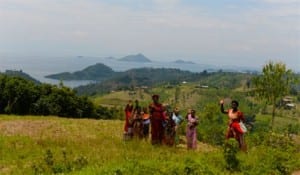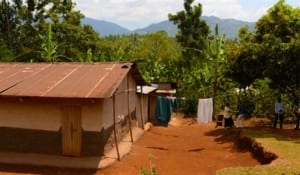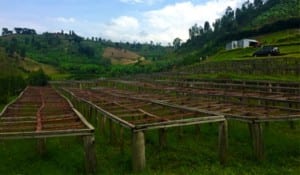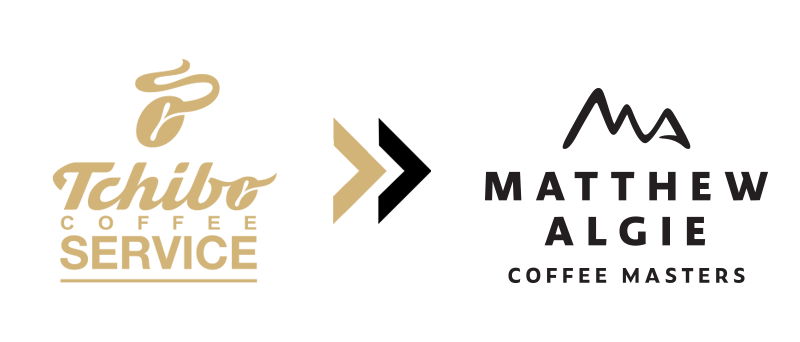Amy Oroko on our work with farmers and cooperatives in Uganda & Rwanda.
September 12th, 2018 | Sourcing & Sustainability
2018
Amy Oroko, Sustainability Manager at Matthew Algie, on the positive impact of our project with farmers in Uganda, and catching up with the Kopakama cooperative in Rwanda.
Two and a half years on from my first trip, I am very happy to be back visiting coffee farmers on the slopes of Mount Elgon, a vast extinct volcano that sits on the Kenyan border in Eastern Uganda. On the dusty six hour drive from Kigali, there’s plenty of time to contemplate how things might have changed during the time that’s passed since I was last here.
Our partnership project with our supplier, the MEACCE cooperative, has had its fair share of challenges along the way, and so my excitement for returning is mingled with a very slight sense of trepidation, considering what impact our support will have had for farmers and their families amongst the changes in governance and complex local politics.
MEACCE’s predecessor, the Gumutindo cooperative, unfortunately went through financial collapse in 2016. This left farmers with no route to market besides local traders or multinationals. The challenge then, was how to set up a new cooperative structure at a pace that would be more financially resilient and would be able to re-engage farmers – even with the Gumutindo legacy fresh in their minds.
Ourselves and our trading partner, Twin, knew that we would, in all likelihood, lose our trading relationship with farmers here if we weren’t able to proactively support the establishment of a new cooperative. Our investment, combined with grant funding from Comic Relief, was used to give support in the formation of MEACCE – developing good governance practices and re-certification.
The cooperative is undoubtedly still on a journey, but it was encouraging to see the great strides that have been made over the last year. MEACCE and their exporting partner, Mountain Harvest, have re-engaged 1,674 farmers on the mountain. They’ve successfully achieved this by offering farmers a route to market. This comes with the added benefits of technical expertise and assistance, an incentive for improved quality (the highest price on the mountain!) and increased value being brought back to the communities through certifications such as Fairtrade.
During our visit, we travelled to see representatives from the Bumatanda farmer group. Today the group is part of the MEACCE umbrella, but they have existed as a community level cooperative since 1949, demonstrating the long tradition and history of coffee growing in this area.
This group of 740 farmers has successfully achieved triple certification: Fairtrade, Organic and Rainforest Alliance. This is something that is still relatively unique globally – especially in the East African context. Michael, the elected Chairman, told us that they’re expecting the Fairtrade social premium from their coffee sales this season to be 29,638,000 Ugandan Shillings (~£6,200). Their AGM for planning how to spend these funds for the benefit of the community was scheduled for a few weeks after our visit.



We were shown fantastic hospitality in Uganda, even staying with MEACCE’s elected President, Nimrod, and his family, on the mountain for one of the nights of our visit. I was definitely saddened to find myself back on the road to Kigali so soon, but I was greatly encouraged by the visit and how much progress has been made in such a short space of time.
From Uganda I took a short flight to neighbouring Rwanda and spent a couple of days with the Kopakama coffee cooperative, a group that farm in an incredibly scenic part of the world, near the glassy waters of Lake Kivu. Kopakama has, since its beginnings in 2006, developed into a real pillar of the local community. From the start of our visit when we were greeted by a large group of cooperative staff and farmer members, it was easy to appreciate the inclusive culture of the organisation – it had a real family feel.
Kopakama have created a women’s only sub-group within the cooperative called “Ejo Heza” or “A better tomorrow” to help empower female farmers in the community. We met up with a group of these women on one of their shared plots, they told us about the benefits of being part of the cooperative and some of the specific investments they have made with the cooperative’s revolving fund programme.
The group welcomed us so warmly, some of them speaking to us in English (which they’re starting to learn as a group). As a young woman working in coffee, I found it incredibly inspiring to see the pride these women took in their coffee farming and their fantastic entrepreneurial spirit! Their investments using the revolving fund ranged from livestock, to opening local boutiques, to making crafts like handwoven baskets – all of which they will manage alongside their coffee farms, supplementing their incomes and improving living standards for themselves and their families.
